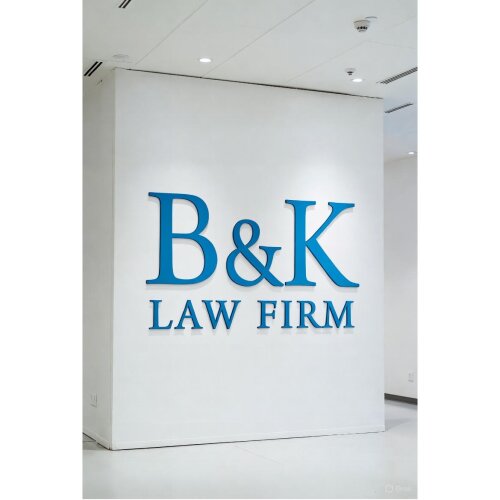Best Bankruptcy Lawyers in Pazardzhik
Share your needs with us, get contacted by law firms.
Free. Takes 2 min.
List of the best lawyers in Pazardzhik, Bulgaria
About Bankruptcy Law in Pazardzhik, Bulgaria
Bankruptcy law in Pazardzhik, Bulgaria, functions within the framework of Bulgarian national legislation. The primary legal act governing bankruptcy is the Bulgarian Commercial Act, specifically its bankruptcy provisions. Bankruptcy in Bulgaria mainly applies to traders, meaning individuals or entities registered as such, who are unable to meet their financial obligations as they become due. The process is designed to protect both creditors and debtors, helping to fairly distribute assets when a business cannot repay its debts. If you are a resident or business owner in Pazardzhik and are considering bankruptcy or facing insolvency, understanding the fundamental procedures and legal requirements is crucial.
Why You May Need a Lawyer
Bankruptcy proceedings are complex and often overwhelming, especially for those unfamiliar with Bulgarian legal procedures. You may need a lawyer in situations such as: facing persistent debt collection, being notified of creditor-initiated bankruptcy, requiring advice on restructuring your business, wanting to understand your legal rights and obligations, or desiring to protect personal or company assets. A knowledgeable lawyer can help you prepare the necessary documentation, represent your interests in court, negotiate with creditors, and ensure compliance with local laws to avoid legal pitfalls.
Local Laws Overview
Bankruptcy law in Pazardzhik is governed by the Commercial Act and related regulations. Key aspects include:
- Bankruptcy usually applies to companies, sole traders, and certain partnerships. Individuals who are not registered traders typically do not fall under this regime.
- Insolvency is determined when a trader cannot pay an obligation that is due, or if its liabilities exceed its assets.
- Bankruptcy proceedings can be initiated by the debtor itself, by a creditor, or by the National Revenue Agency if public debts are unpaid.
- The Plovdiv District Court, including its Pazardzhik division, has jurisdiction over bankruptcy cases in the region.
- Once proceedings begin, the court appoints a trustee to oversee asset management and creditor settlements.
- A stay of individual enforcement actions is typically imposed, meaning creditors must await the collective bankruptcy process.
- The process includes identifying assets, assessing claims, and satisfying creditors according to legal priorities.
- Certain debts and assets may be excluded according to local statutes.
Frequently Asked Questions
What is bankruptcy under Bulgarian law?
Bankruptcy is a court-supervised legal process through which financially insolvent traders have their assets distributed among creditors and debts settled according to legal priorities.
Who can file for bankruptcy in Pazardzhik?
Primarily, registered traders such as companies, sole traders, and general partnerships can file. Private individuals not acting as traders fall under different legal regimes.
How do I know if I am insolvent?
You are considered insolvent if you are unable to pay overdue debts or if the total value of your liabilities exceeds your assets.
Can creditors initiate bankruptcy proceedings?
Yes, creditors with legitimate claims, as well as the National Revenue Agency for public debts, can file a petition for bankruptcy against a trader.
What happens to my business during the proceedings?
A court-appointed trustee is generally placed in control of the business affairs and assets to ensure the fair settlement of claims.
Will all my debts be wiped out through bankruptcy?
Not all debts are discharged. Some obligations, such as secured debts or certain public obligations, may still need to be paid, depending on the case.
How long does bankruptcy proceedings take in Pazardzhik?
The duration depends on the complexity of the case, the amount of assets, and the number of creditors involved. Proceedings can last from several months to several years.
What documents will I need to start the process?
You will typically need company registration documents, lists of assets and liabilities, financial statements, creditor lists, contracts, and other proof of financial circumstances.
Will my personal assets be affected?
Usually, only business assets are involved, unless you have personally guaranteed business debts or are a sole trader, in which case personal assets may be at risk.
Can I continue operating my business after bankruptcy?
In certain cases, the court allows the business to continue operations under supervision, but this depends on several legal and financial factors, as well as the court's decision.
Additional Resources
If you are seeking more information or assistance about bankruptcy in Pazardzhik, the following resources may be useful:
- District Court Pazardzhik - Handles local bankruptcy cases and provides information on legal procedures.
- Bulgarian Ministry of Justice - Offers legal guides and up-to-date regulations.
- National Revenue Agency - Can provide information about tax debts, enforcement, and public claims.
- Local Bar Association - Can help you find licensed bankruptcy lawyers with experience in Pazardzhik.
- Commercial Register - For business entity information, insolvency status, and company reports.
Next Steps
If you are facing financial difficulties or suspect you may need to begin bankruptcy proceedings in Pazardzhik, Bulgaria, the following steps can help guide you:
- Gather all your company’s financial documents and records.
- Assess your liabilities with the help of an accountant or legal professional.
- Contact a qualified bankruptcy lawyer in Pazardzhik who can explain your options and represent you in court.
- Consult with local authorities or the District Court for procedural guidelines.
- Consider negotiations with creditors before formal proceedings if possible.
- Act promptly to avoid further legal complications and protect your rights.
Taking early legal advice ensures you comply with all requirements and increases the likelihood of a favorable outcome.
Lawzana helps you find the best lawyers and law firms in Pazardzhik through a curated and pre-screened list of qualified legal professionals. Our platform offers rankings and detailed profiles of attorneys and law firms, allowing you to compare based on practice areas, including Bankruptcy, experience, and client feedback.
Each profile includes a description of the firm's areas of practice, client reviews, team members and partners, year of establishment, spoken languages, office locations, contact information, social media presence, and any published articles or resources. Most firms on our platform speak English and are experienced in both local and international legal matters.
Get a quote from top-rated law firms in Pazardzhik, Bulgaria — quickly, securely, and without unnecessary hassle.
Disclaimer:
The information provided on this page is for general informational purposes only and does not constitute legal advice. While we strive to ensure the accuracy and relevance of the content, legal information may change over time, and interpretations of the law can vary. You should always consult with a qualified legal professional for advice specific to your situation.
We disclaim all liability for actions taken or not taken based on the content of this page. If you believe any information is incorrect or outdated, please contact us, and we will review and update it where appropriate.









